I Found My Father's Killer
Joselyn Martinez's dad was murdered when she was 9 years old. Decades after his killer fled the country—and after the police gave up—she brought him to justice herself.
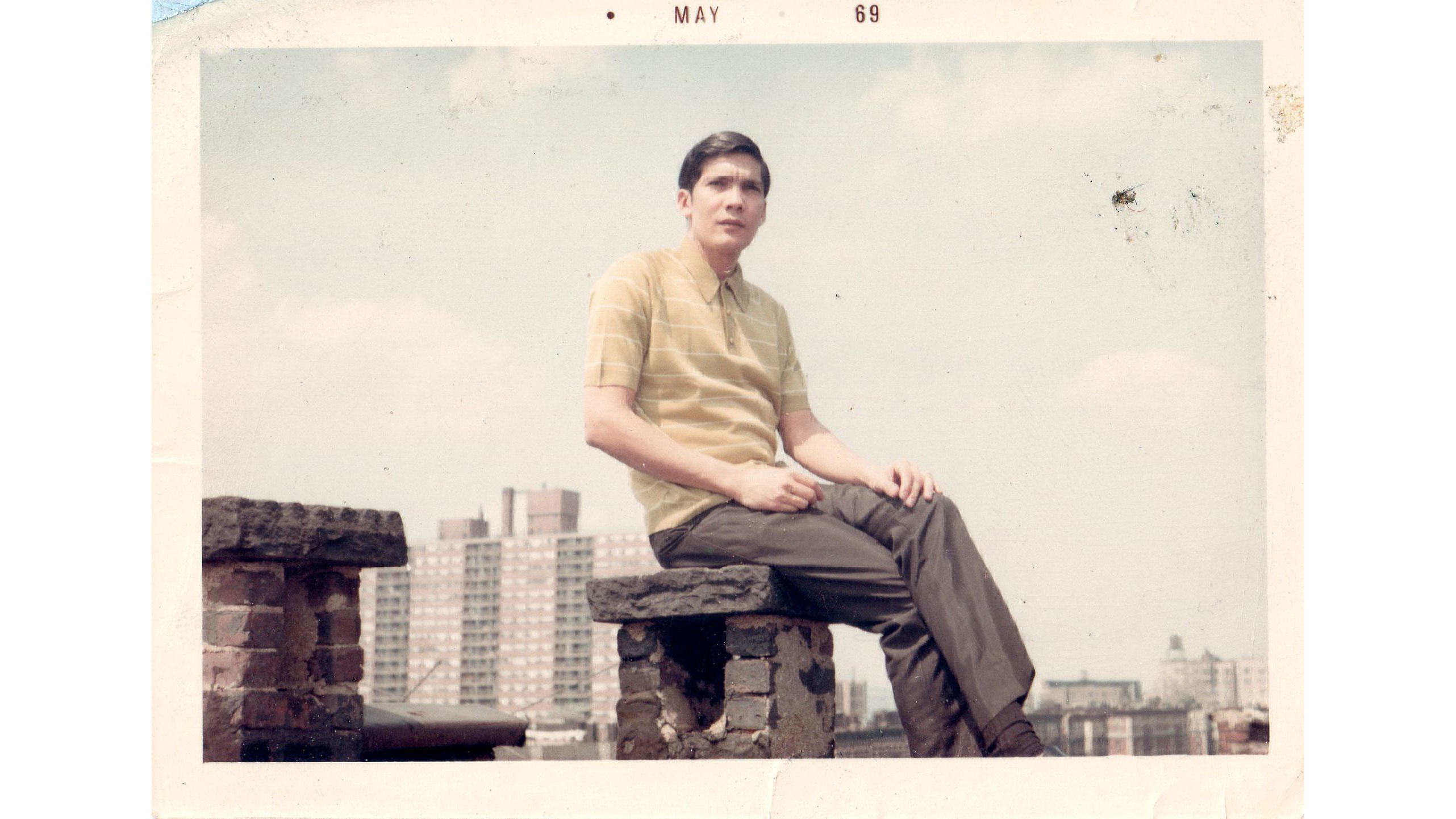
When she was a girl, Joselyn Martinez was obsessed with a boy. But teenage infatuation played no part. "I would come home from school, take out the wanted poster, and stare at his picture," she says. "It was a smirking picture, kind of like, 'You're never gonna get me.'" The boy in the photo, 16-year-old Justo Santos, had murdered Martinez's father.
The homicide took place in 1986, when Martinez was just 9 years old, living in the Inwood neighborhood in upper Manhattan. Her parents, Jose and Idalia Martinez, owned the Dominican Express restaurant on Dyckman Street, the neighborhood's central artery. On the evening of November 22, Santos and two friends entered the restaurant. When the waitress approached their table, they insulted her with crude remarks. Martinez's father intervened, asking the group to leave.
A fight broke out, and the men tumbled through the doors and onto the sidewalk. In the scuffle, Santos pulled a .22-caliber pistol from his jacket pocket. The gun went off. A bullet struck Jose Martinez in the chest. He didn't make it to morning.
A few weeks later, Santos fled New York City with a friend, returning to his native Dominican Republic to stay with family members. He never stood trial in the United States for Jose's murder.
For the next quarter-century, Martinez was left alone with her obsession, determined to find the man no one else could.
Throughout her childhood and teens, Martinez kept her tragedy to herself, as though she harbored a terrible secret. "I didn't want to tell anyone," she says. "I was embarrassed. But I always got enraged over injustices—I would cry when something wasn't fair."
She majored in political science at New York University, but she had other dreams: singing, acting, modeling. All along, her family's unresolved past interrupted her hopes for the future. November of Martinez's freshman year at college marked the 10th anniversary of her father's murder. She found herself on the subway heading uptown to the old neighborhood. "I went to the 34th precinct for the first time," she says. "I had no real goal. It was just an instinct."
Stay In The Know
Get exclusive access to fashion and beauty trends, hot-off-the-press celebrity news, and more.
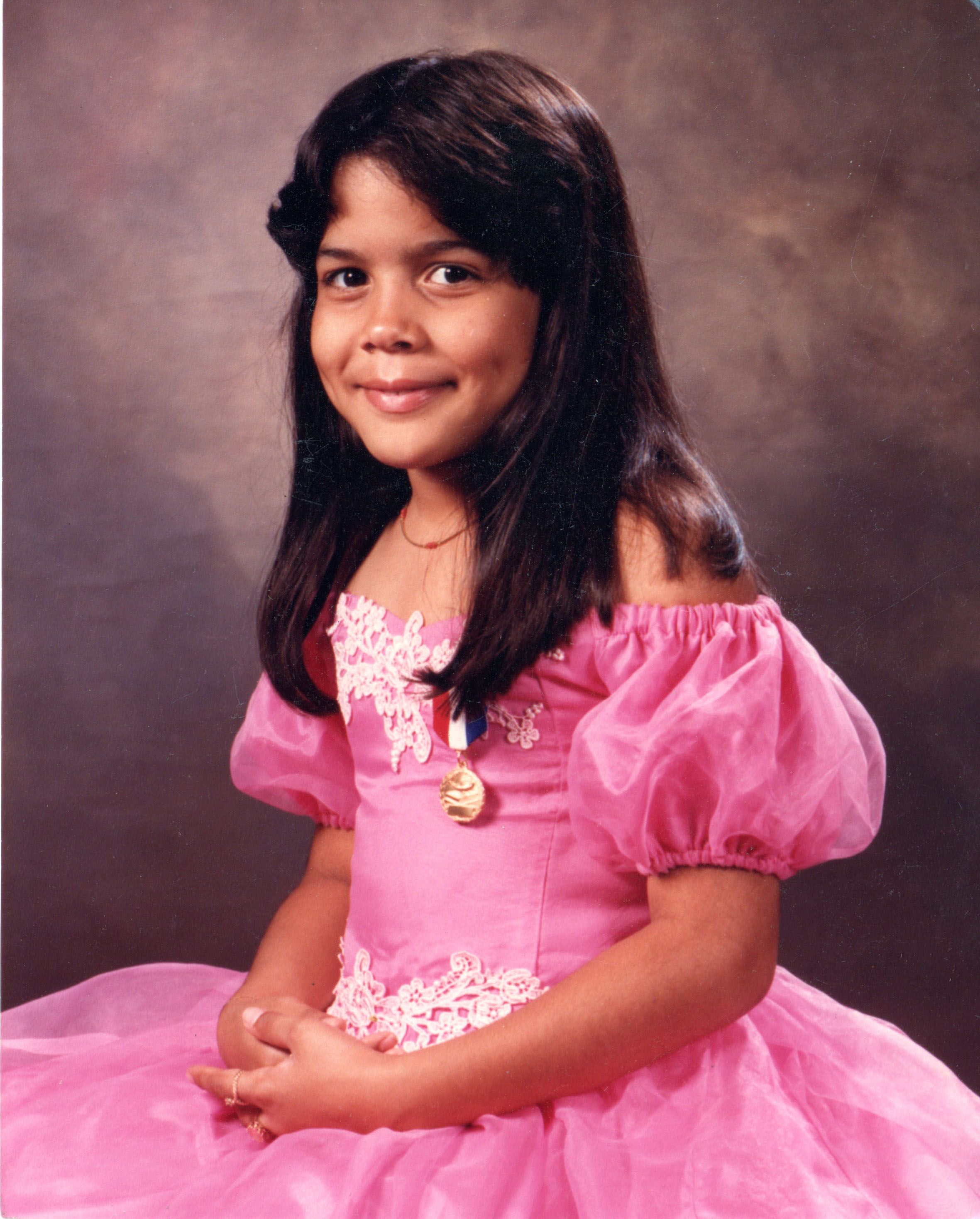
Joselyn Martinez at her fifth grade graduation, after her father's death
While there, Martinez discovered that the investigator assigned to her father's case had spoken with Santos by phone in 1987, shortly after the homicide. Santos confessed to the crime on the call, pleading self-defense. He was in the Dominican Republic, but the two countries had no extradition agreement at that time.
Martinez also learned that Santos was charged with the murder in his home country in 1988 under legislation covering crimes against Dominicans abroad; he served only a year in prison. The New York City Police Department had since closed her father's case.
But convictions abroad don't apply in the U.S., and there is no statute of limitations for murder. Santos could still be tried for the crime, and serve an additional sentence in New York.
Martinez knew she needed to locate him.
She graduated from NYU in 2000 and was soon busy dabbling in modeling, recording songs for an album, and going on casting calls. In 2005, she shot a music video in the Dominican Republic. One day, she opened Listin Diario, a local newspaper, to find a photo of herself and a write-up about her music. The past came flooding back.
"My eyes are filling up with tears as the thought of my dad comes to mind," she wrote in her diary. "He would have been so proud to know that I am in the front pages of the Arts section in his country."
Approaching her 30s, Martinez found it increasingly difficult to ignore the event that had defined her life. "I couldn't let it go," she says. "I felt this drive. I had to do something about it. It was my job to do so. We have a responsibility to family."
But she had no experience tracking a fugitive, nor the resources to hire a private detective. She had two half-brothers on her mother's side, but they didn't share Martinez's determination to find the killer. Her mother had faded into depression.
Martinez discovered numerous listings for "Justo Santos" online. She paid for information where she could, but there were plenty of scams and dead ends. She searched marriage records, property records, and commercial business records. But no matter how deeply she dug, she lacked the key piece of information that would enable her to narrow her search: Santos' birthdate.
She collected her data in a folder titled "That Person" on her desktop. And she looked to the media for assistance. She reached out to America's Most Wanted, but received no reply. That only made her more determined.
"At some point, I decided, 'I'm just gonna friggin' do it,'" Martinez says. "I'm his only daughter. I was named after him. If there's life after death, I don't want to look at my dad and say I didn't do anything."
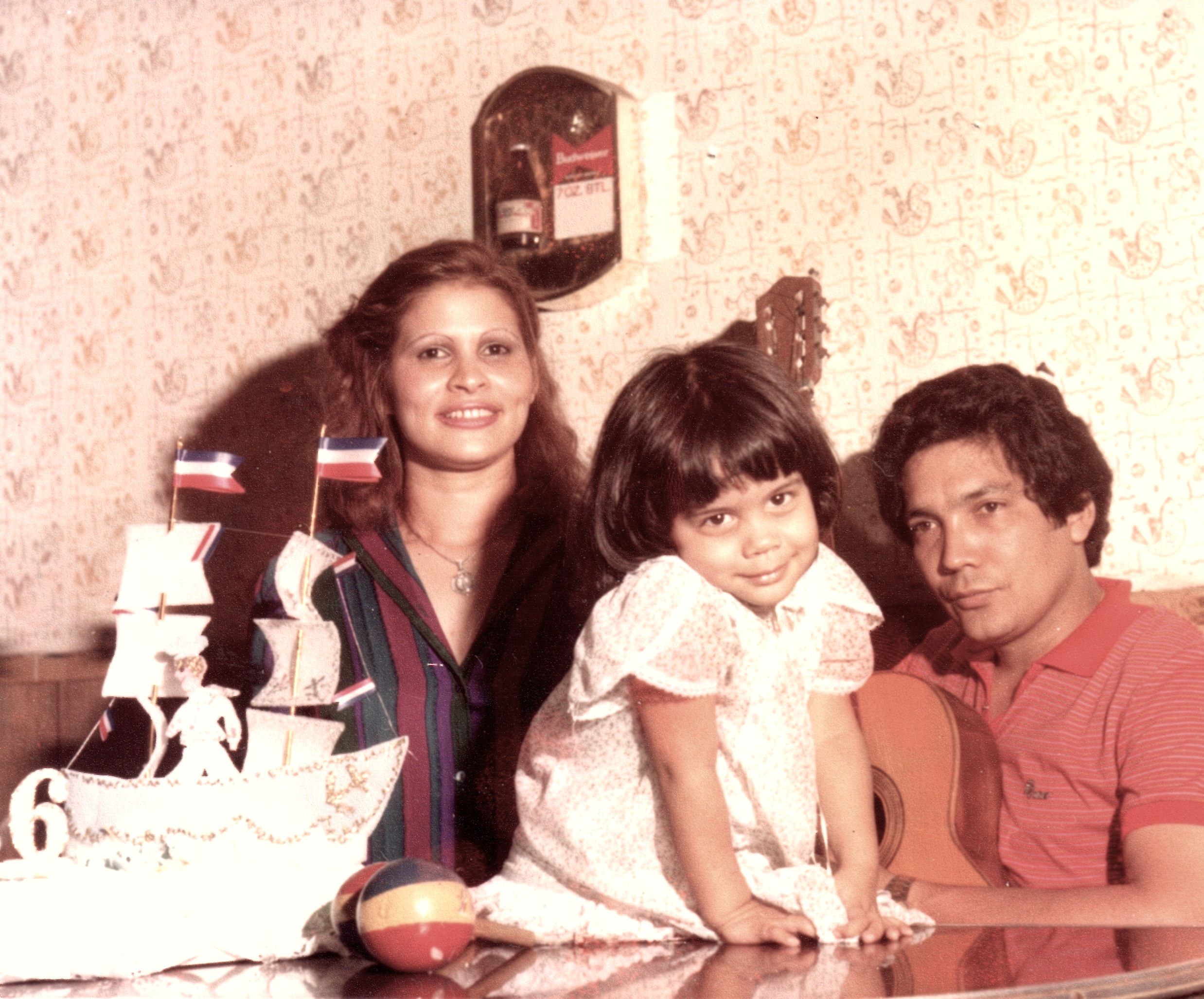
Joselyn and her parents on her father's 36th birthday
Between casting calls and modeling shoots, Martinez continued her research, now several years into the process. "I thought that as time went by, I would get over it," she says. "But I didn't. It was overtaking me. Letting things be just wasn't working for me. I became completely obsessed." Having hit a wall in her research, Martinez felt like she needed a hand.
At the 34th Precinct, on Broadway and 183rd Street in Manhattan, Martinez requested her father's case file. Two months later, in January 2013, an officer located the file in the archives and gave her a synopsis of its contents. Back at home, while leafing through the synopsis, Martinez made a discovery: The file contained a verified date of birth for Justo Santos.
This information allowed Martinez to eliminate most of the listings in the "That Person" folder on her desktop. It left just one Justo Santos. Martinez realized she had a match. The feeling was surreal: "At that moment, it's, 'This is what you wanted, what you always asked for. Well, now you got it,'" she recalls. "It was like it was in 3D."
Twenty-seven years after the murder, Martinez had found her father's killer. He was living in Miami.
Justo Santos had been going about his daily life under the nose of U.S. authorities for more than two decades.
He'd been released from Dominican prison in 1989 and had come to the States. In 2009, he became a U.S. citizen, having left his murder conviction off his application. He was married and had five children.
Santos had held a variety of jobs within the custodial industry, working as a janitor in government and law enforcement offices, and eventually as a property manager for the company that cleaned the Miami-Dade County Police Department.
Now that Martinez had located Santos, she had to enlist the support of the police to bring him to justice. Officers at the 34th Precinct connected Martinez with Detective Robert Dewhurst, an investigator with the New York Police Department's Cold Case Squad. (The NYPD declined to comment for this story. When asked about the case in 2013, then-police commissioner Raymond Kelly said: "They should not have closed the case.")
One summer day in 2013, Det. Dewhurst called to tell Martinez that he was taking a trip to Miami. Martinez knew what this meant. After all these years, after all of her sleuthing, she was about to get what she had always wanted.
It was hot in New York City. Martinez tried to pass the time by jogging, by watching birds in Van Cortlandt Park near her apartment. On June 13, 2013, Dewhurst finally called again. She didn't let him speak. "So…" she said. "You got him?"
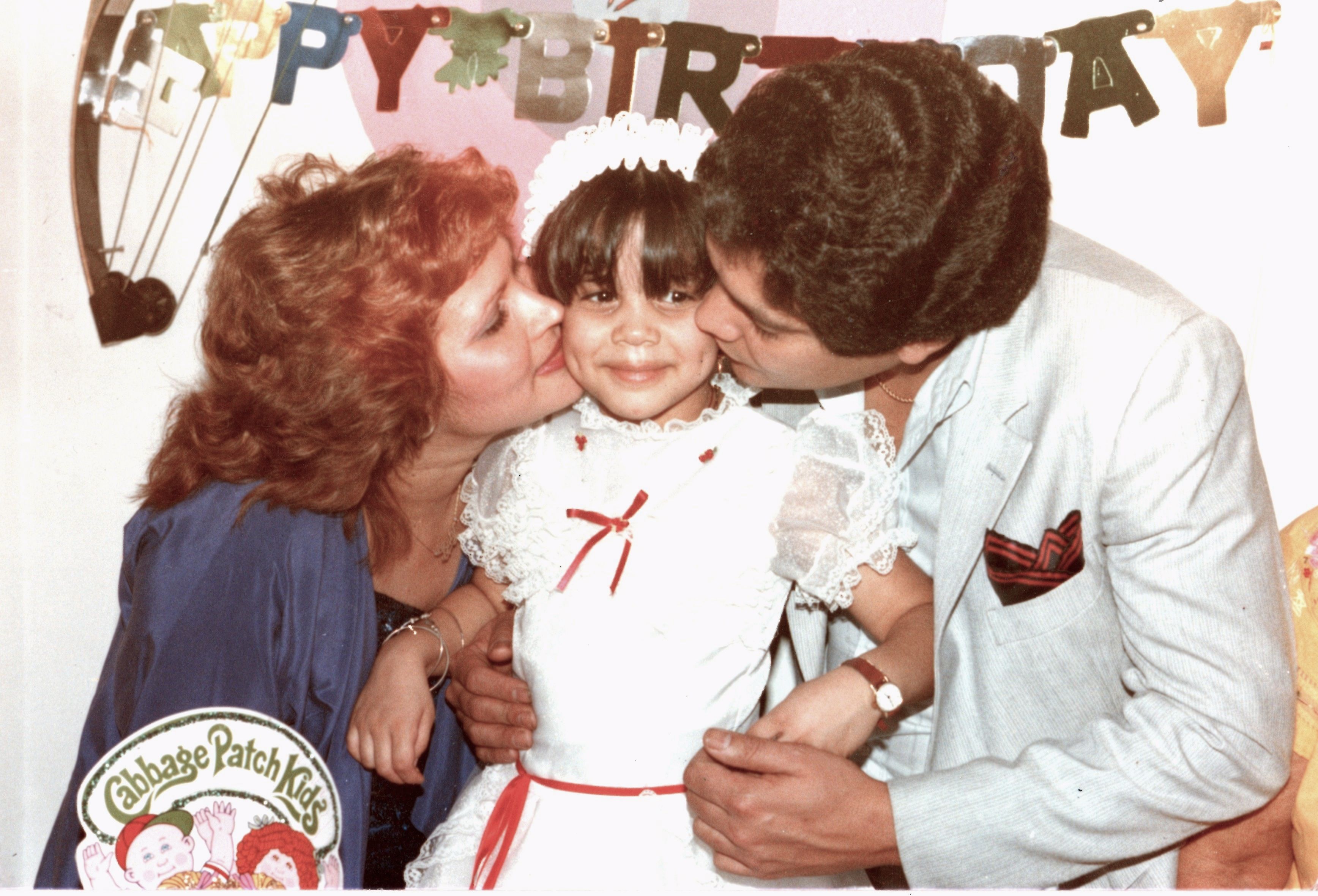
The line went silent. Then Dewhurst spoke. Santos had confessed. He was in custody.
Less than a week later, Martinez arrived at Manhattan Supreme Court for Santos' grand jury hearing. Bailiffs led Santos, wearing an orange jumpsuit, into the courtroom. "I was so upset when he appeared," Martinez says. "I planned not to look at him. I made it a point. He's insignificant. But I did while testifying. I was angry. Because it confirmed my father had died."
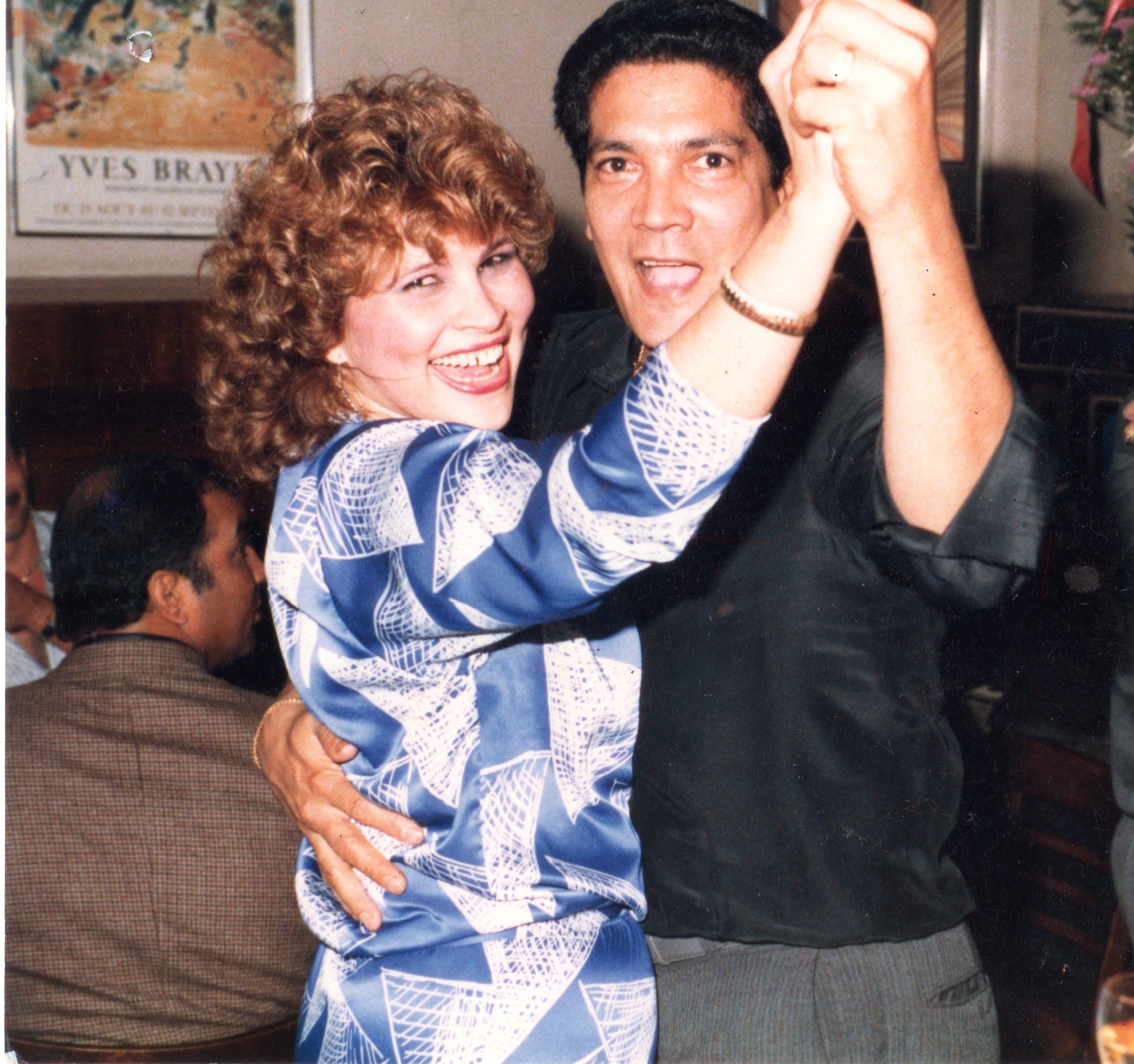
Jose and Idalia Martinez, Joseyn's parents
For the next 17 months, attorneys for Santos and the state filed motions and countermotions. Santos' defense contended that the government had waited too long to charge his client. The prosecution argued that since Santos had been a fugitive, this claim had no merit. Manhattan Supreme Court Justice Robert Stolz deliberated. All the while, Santos was held at Rikers Island. Unable to work, he lost his job and home in Miami. He claimed that his family had moved into a homeless shelter in the Bronx.
Martinez had her own struggles. "Everyone was celebrating the arrest, but I wasn't," she says. "For over a year, I didn't want to talk about anything other than the situation. I got headaches every day. I started missing casting calls." She realized that she had to do more in order to move forward. "I threw out my dad's wallet and all the things I had kept," she says. "His wallet still had his credit cards, gym membership, a shopping list for the restaurant, pictures of me and my half-brothers. I had a hard time thinking he wouldn't need it anymore."
Then she began receiving death threats. Martinez was out for lunch with her mother one day when she opened an email that read, "I will shoot your head and I will rape you!!!" Police were unable to trace the sender.
On October 30, 2014, all parties assembled once more in Judge Stolz's courtroom to hear his decision: He dismissed the charge against Santos. Stolz ruled that the district attorney had delayed bringing the case to court, violating Santos's constitutional right to a speedy trial. "There is no dispute that the police did absolutely nothing between March 1988, when the case was closed, and February 2013, when the case was reopened," Stolz wrote in his ruling. "Once the police made the decision to close the case, the prosecution's efforts were not 'reasonably diligent'; they were nonexistent."
With her mother by her side, a devastated Martinez watched Santos walk.
In December, just before Christmas 2014, the Manhattan district attorney, Cyrus Vance, Jr., declined to appeal Judge Stolz's ruling.
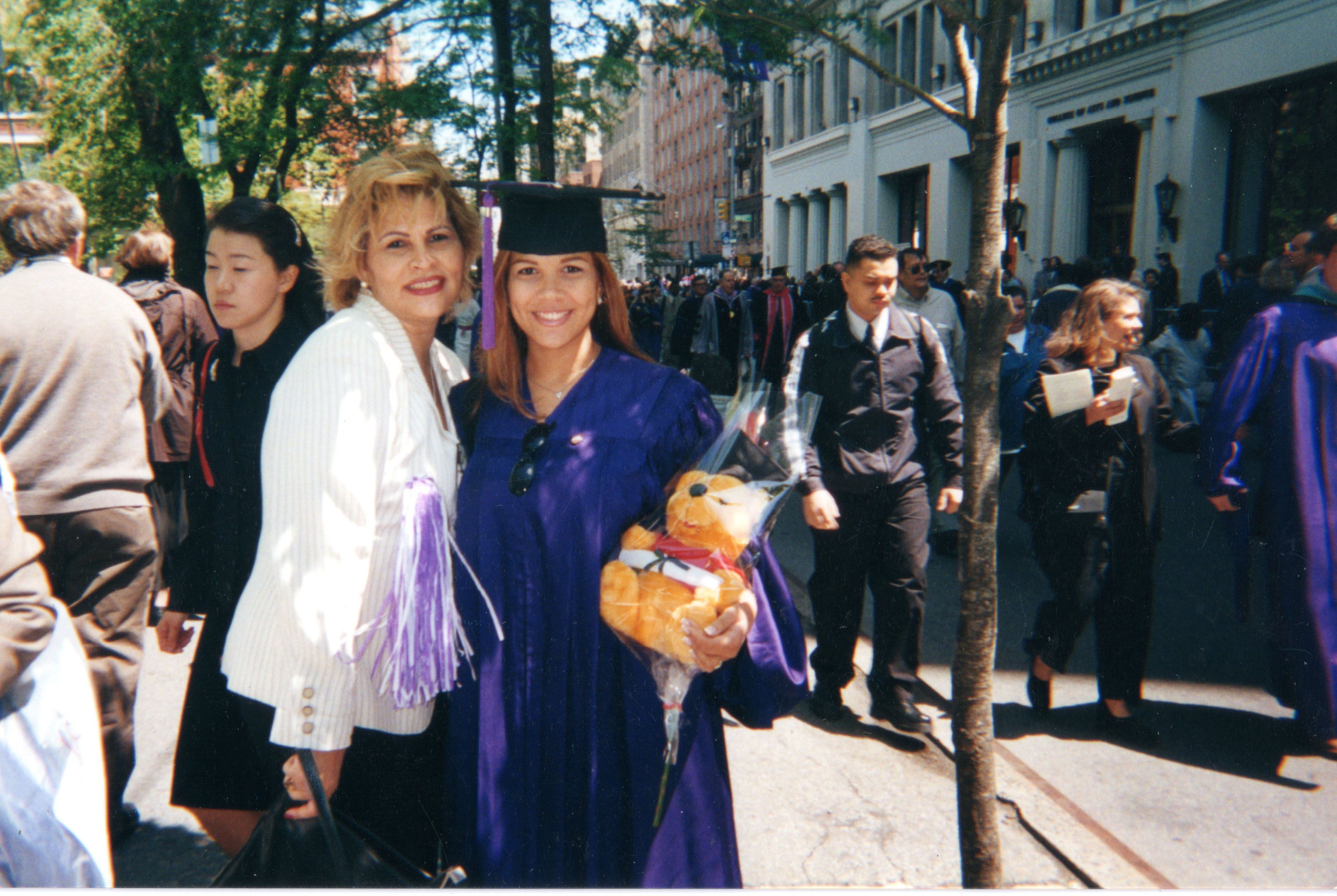
Martinez at her NYU graduation in 2000 with her mother
Martinez has since redirected her attention to her career. She currently works as a stand-in and photo double for Jennifer Lopez on the set of the Shades of Blue. The TV show follows a New York City police detective; memories of her father's case are never far away.
Santos is not out of legal jeopardy. In Florida, he is now facing a three-count indictment related to his allegedly unlawful procurement of U.S. citizenship in 2009, and a maximum penalty of 30 years in prison. The case is scheduled to be heard in April 2016.
Martinez's efforts haven't gone unnoticed. "People email me now," she says. "They want to know how I found him, if I can help their situation."
Martinez walks down Dyckman Street in upper Manhattan, through the old neighborhood, past a hardware store and a bakery and a taxi stand. She stops at the corner of Nagle Avenue, underneath an elevated subway track. It was on this spot, 30 years ago, that Santos fired the shot that killed her father. Martinez believes that Santos escaped justice. But as she eyes the storefront that once held her father's restaurant, she takes solace in what she has achieved. "The guy was in jail at Rikers Island for one year and four months," Martinez says. "Because I decided to do that to him."
Overhead, a subway train rattles past.
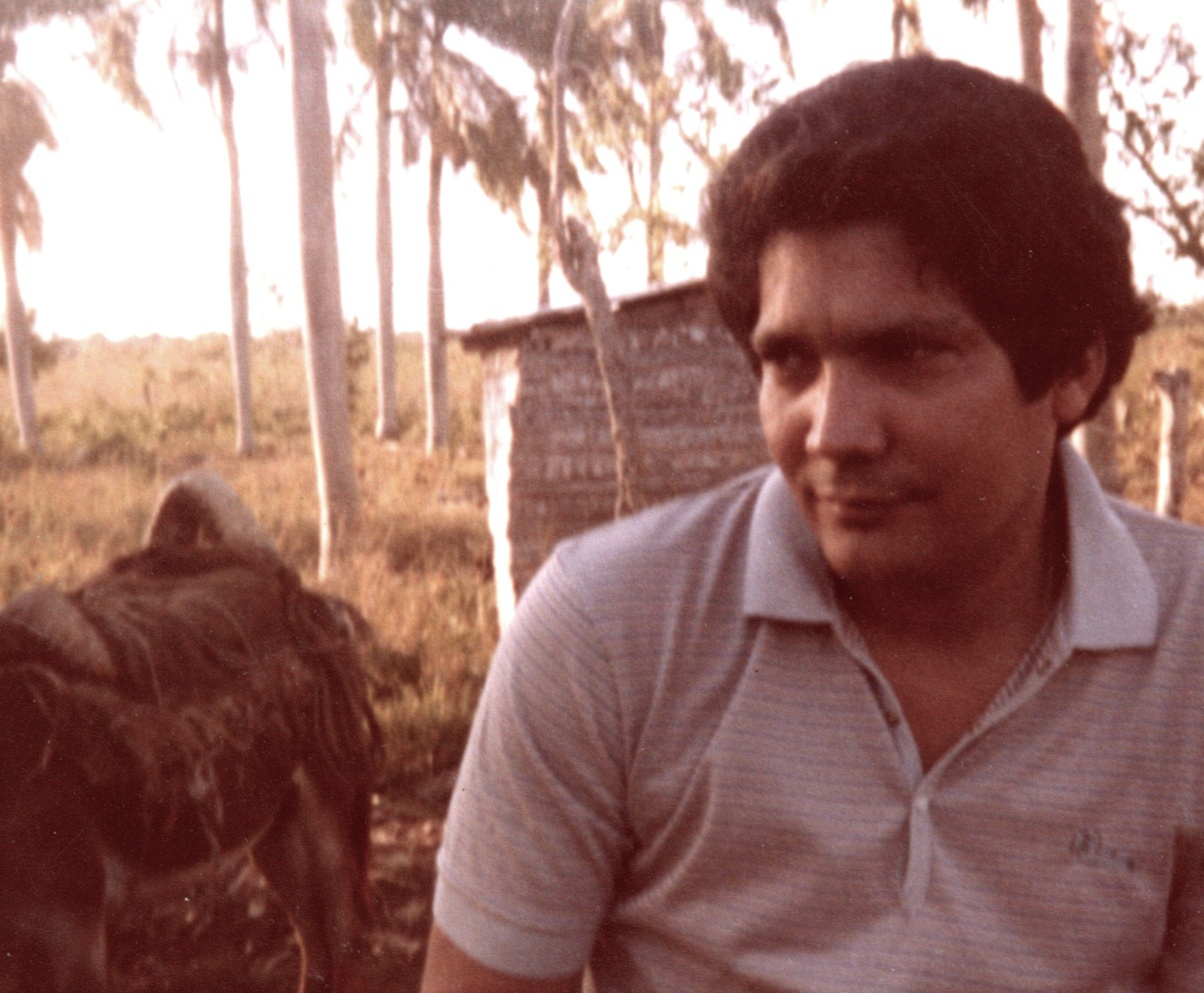
-
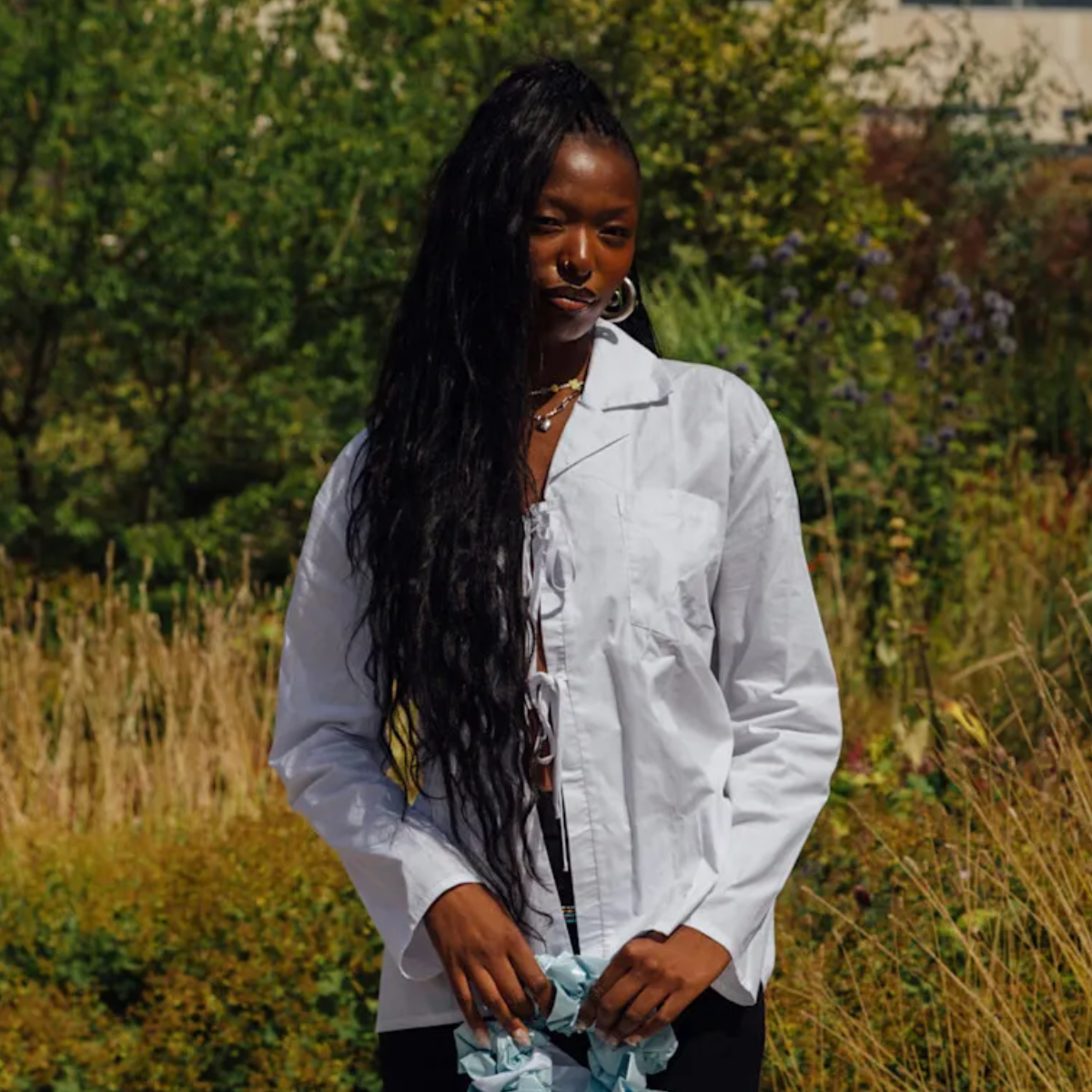 I Used Nordstrom’s Sale Section to Craft 7 Perfect Summer Outfits
I Used Nordstrom’s Sale Section to Craft 7 Perfect Summer OutfitsThese are formulas you can rely on.
By Brooke Knappenberger
-
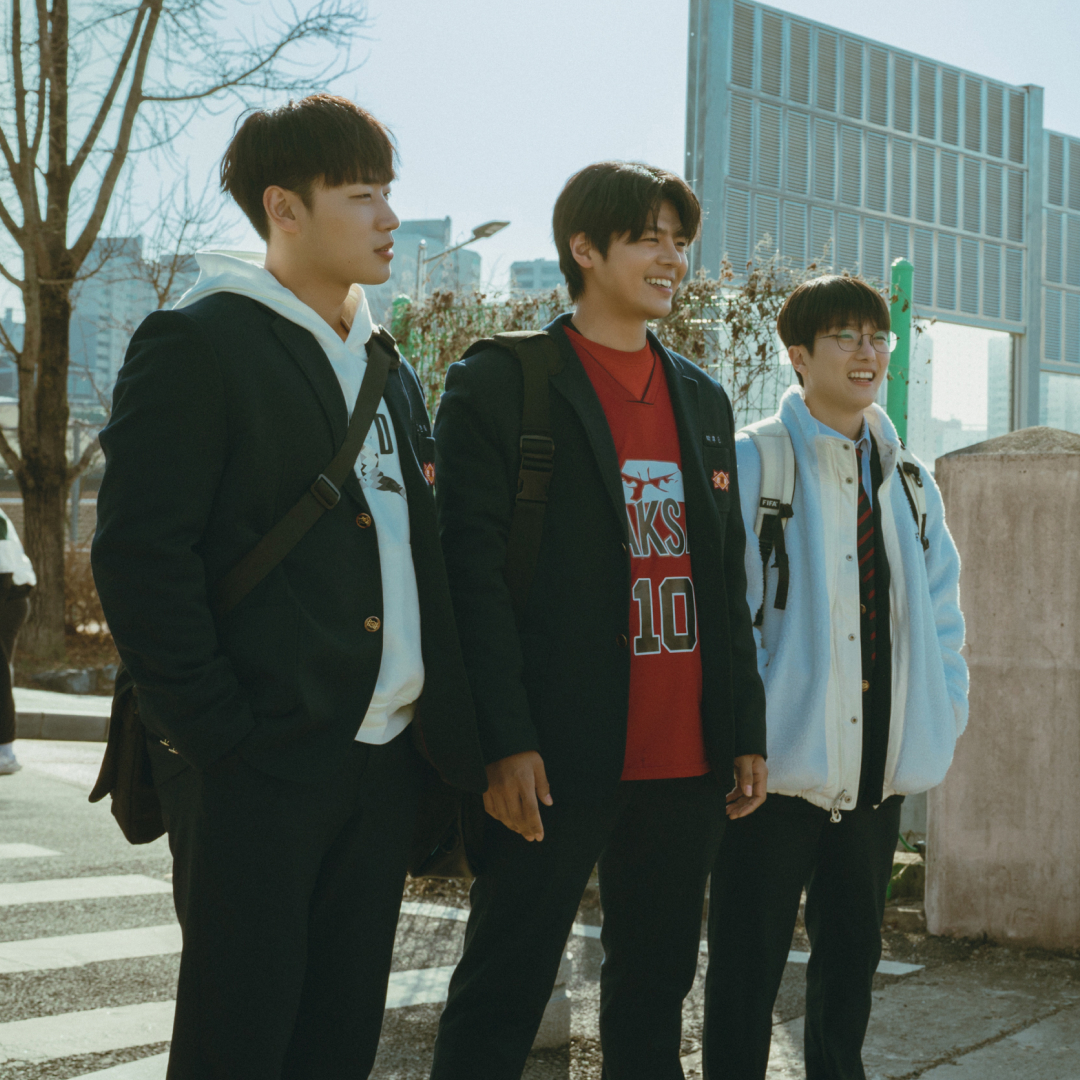 Your Syllabus Guide to the 'Weak Hero Class 2' Cast—Meet the Rising K-Drama Stars Playing the Students of Eunjang High
Your Syllabus Guide to the 'Weak Hero Class 2' Cast—Meet the Rising K-Drama Stars Playing the Students of Eunjang HighSo many exciting names join Park Ji-hoon in the second season of the Netflix hit.
By Quinci LeGardye
-
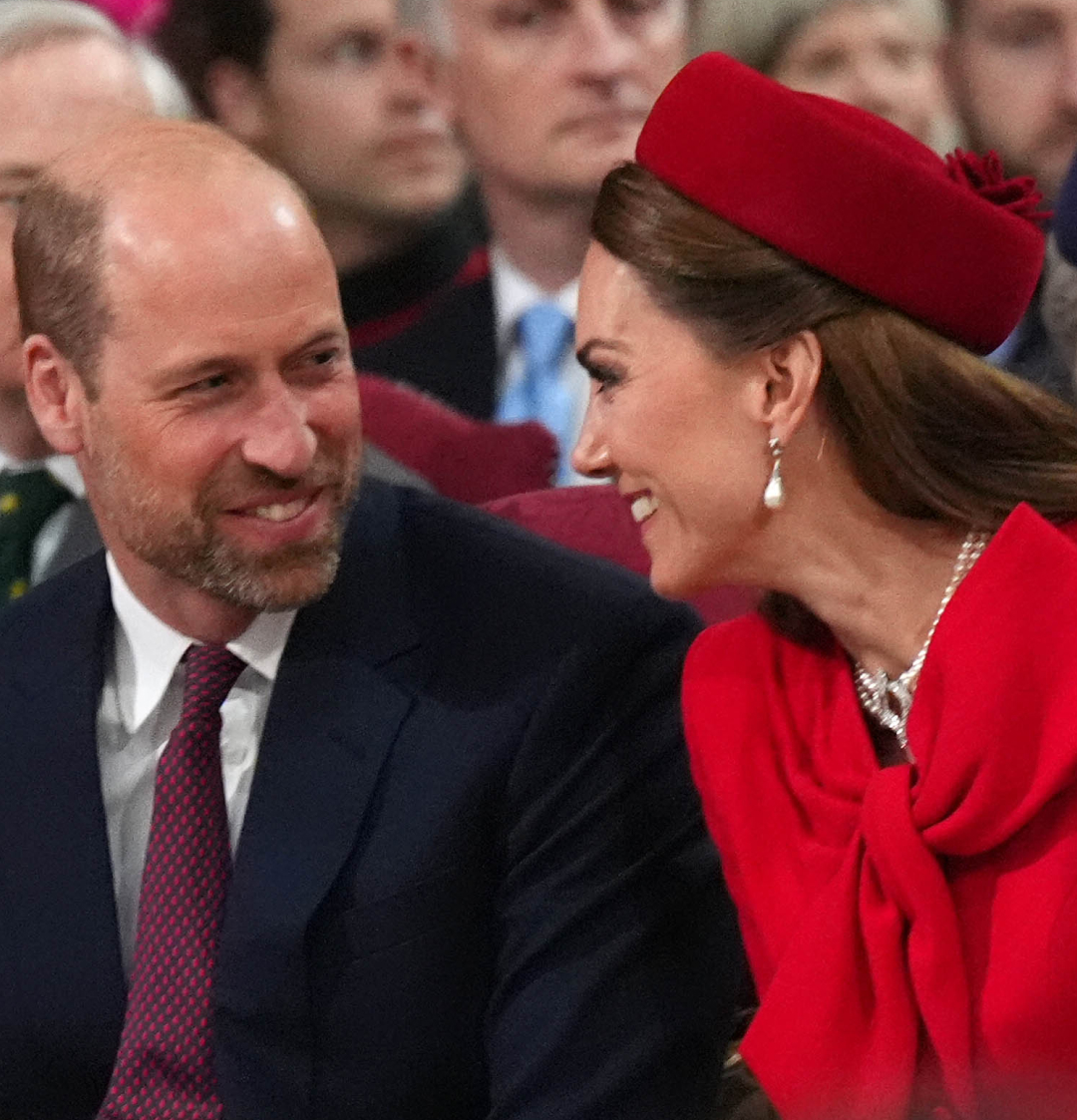 Prince William and Kate Middleton "Continue to Push Boundaries"
Prince William and Kate Middleton "Continue to Push Boundaries""They definitely have a different dynamic compared to other royal couples."
By Kristin Contino
-
 Of Murder and Motherhood
Of Murder and MotherhoodTheir children are gone but these women are united in their fight for justice and answers.
By Katya Cengel
-
 60 Gifts for Mom She'll Truly Love
60 Gifts for Mom She'll Truly LoveFrom creature comforts to luxe indulgences.
By Sara Holzman
-
 'Skye Falling' Deserves a Spot on Your Summer Reading List
'Skye Falling' Deserves a Spot on Your Summer Reading ListIn July, Marie Claire read Mia McKenzie's 'Skye Falling.' See what the #ReadWithMC community thought about the book here.
By Marie Claire
-
 What to Know About Adria Biles, Simone Biles' Sister and Biggest Supporter
What to Know About Adria Biles, Simone Biles' Sister and Biggest SupporterFeatures Here's what to know about the Team U.S.A. gymnast's supportive, lookalike sis.
By Katherine J. Igoe
-
 Melissa Moore's 'Life After Happy Face' Podcast Looks at Killers Through New Eyes
Melissa Moore's 'Life After Happy Face' Podcast Looks at Killers Through New EyesThe true crime expert and daughter of the Happy Face Killer opens up to Marie Claire about destigmatizing the label of 'criminal's kid.'
By Maria Ricapito
-
 Won't Call the Midwife
Won't Call the MidwifeWith high rates of maternal mortality and coercion in hospital settings, more American women are exploring childbirth without any medical assistance whatsoever. The Free Birth Society provides community, resources, and validation for these convention buckers. But experts warn that choice comes at the expense of safety.
By Rebecca Grant
-
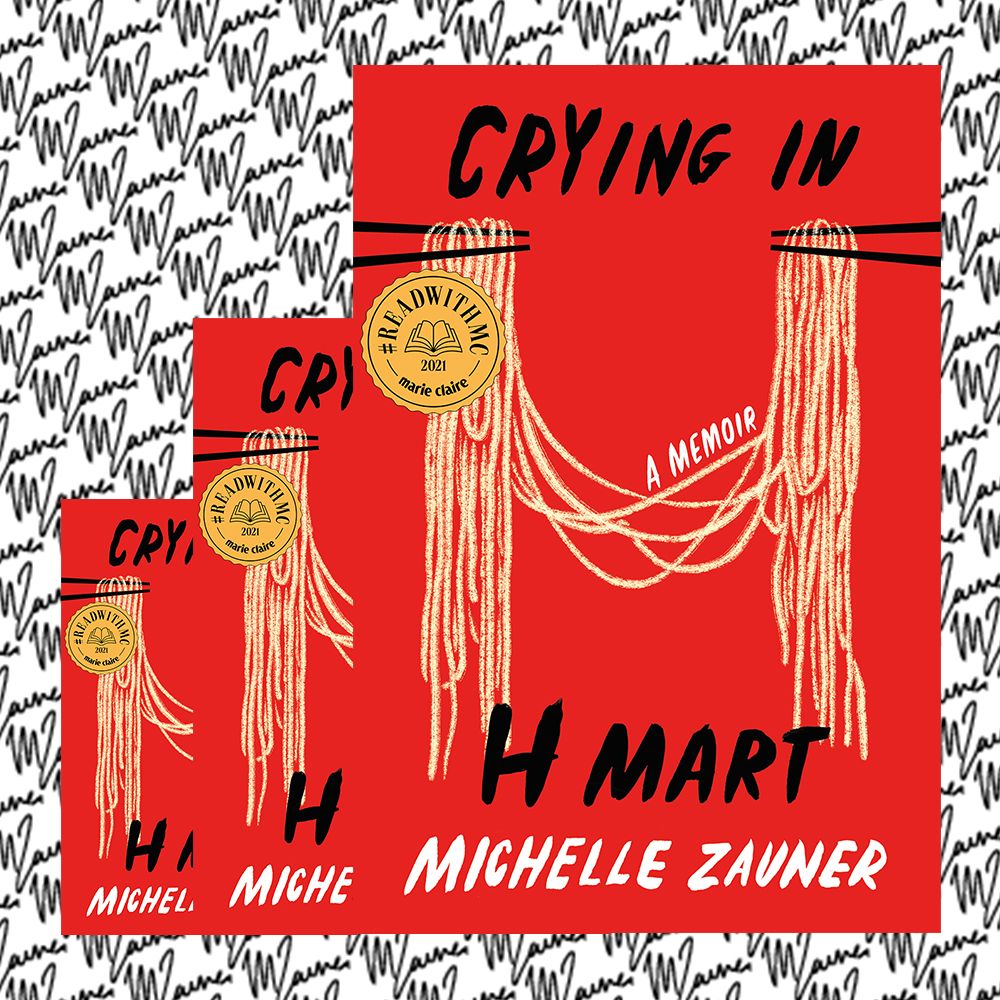 Michelle Zauner's 'Crying in H Mart' Is Deeply Moving
Michelle Zauner's 'Crying in H Mart' Is Deeply Moving"She made me want to eat and cry at the same time..."
By Rachel Epstein
-
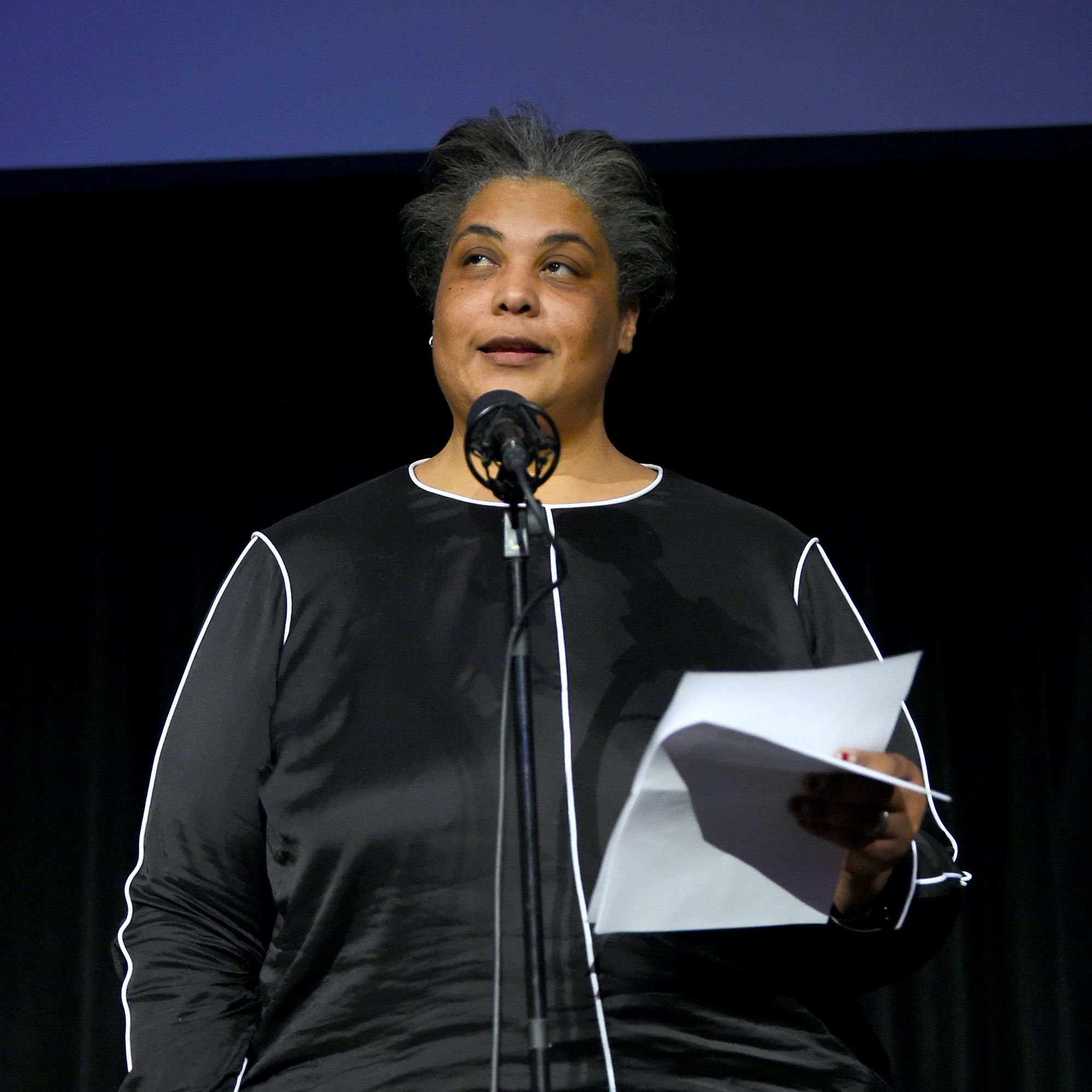 Black Lives Matter Quotes That Are Powerful, Informative, and Necessary
Black Lives Matter Quotes That Are Powerful, Informative, and Necessary"Racism is a visceral experience...It dislodges brains, blocks airways, rips muscle, extracts organs, cracks bones, breaks teeth. You must never look away from this."
By Katherine J. Igoe